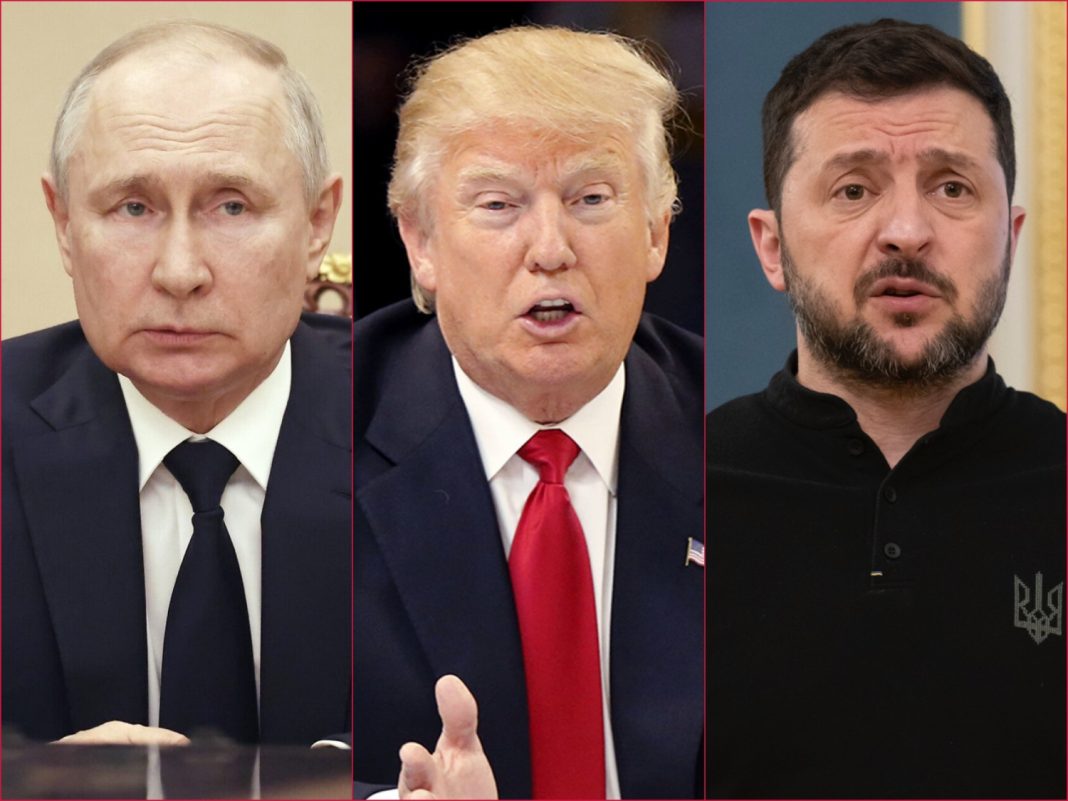ISTANBUL, Turkey — Peace talks between Russian and Ukrainian delegations concluded on Monday, June 2, 2025, in Istanbul after just over an hour, yielding modest humanitarian agreements but no signs of progress toward ending the three-year-old war.
Ukrainian President Volodymyr Zelenskyy confirmed that both sides agreed to prepare a new prisoner exchange and to return the bodies of 6,000 fallen soldiers.
The talks, held at Istanbul’s historic Ciragan Palace and chaired by Turkish Foreign Minister Hakan Fidan, came amid a sharp uptick in violence and a dramatic Ukrainian operation that targeted air bases deep inside Russian territory.
Speaking from Vilnius, Lithuania, where he met with Nordic and NATO-aligned leaders, Zelenskyy called the outcome limited but necessary.
“We exchanged documents through the Turkish side, and we are preparing a new release of prisoners of the war,” he said.
The Istanbul meeting was overshadowed by Ukraine’s largest-ever cross-border drone operation, which damaged or destroyed more than 40 Russian military aircraft on Sunday, June 1, 2025.
The attack, described by security officials as a year-and-a-half in the making, spanned five Russian regions and three time zones.
Ukrainian authorities claim the strikes inflicted over $2 billion in damage.
Zelenskyy praised the operation as “brilliant,” while Vasyl Maliuk, head of Ukraine’s Security Service (SBU), called it “a major slap in the face for Russia’s military power.”
The drones, reportedly smuggled into Russia and launched from concealed mobile platforms, struck strategic air bases as far as the Russian Arctic, Far East, and Siberia.
According to Ukrainian sources, at least a third of Moscow’s strategic bomber fleet was affected, including Tu-95, Tu-22M3, and A-50 aircraft. Videos released by Kyiv appear to show extensive damage.
Moscow has downplayed the impact of the strikes. Russian state television gave the events limited airtime, focusing instead on retaliatory drone and missile attacks on Ukrainian targets.
On Sunday, June 2, 2025, Russia launched 472 drones—the highest number since the start of its full-scale invasion in 2022—while Ukrainian air defences reported intercepting 52 of 80 drones fired overnight.
Still, military analysts say the Ukrainian strikes may force Moscow to reconsider its air strategy and defensive posture.
“This is a military and strategic game-changer,” said Edward Lucas of the Center for European Policy Analysis.
Phillips O’Brien, a professor of strategic studies at the University of St Andrews, called it “a big blow to Russian strategic airpower.”
Despite the humanitarian agreements, hopes for a broader ceasefire remain bleak.
The Russian and Ukrainian delegations—led by Kremlin aide Vladimir Medinsky and Ukrainian Defence Minister Rustem Umerov, respectively—sat across from each other with Turkish officials mediating.
Most Ukrainian delegates wore military fatigues, underscoring the ongoing reality of war.
Commenting after the meeting, Zelenskyy said that if talks continued to stall, “strong new sanctions are urgently, urgently needed” against Moscow.
According to the Washington-based Institute for the Study of War, Russia is deliberately prolonging the conflict to make further battlefield gains, adding that Moscow has shown little interest in sincere negotiations.
While diplomacy struggles, the humanitarian toll continues to rise. Russian shelling of Ukraine’s southern Kherson region on Monday killed three people and injured 19, including two children.
In Zaporizhzhia, five were reported dead and nine injured following missile strikes and artillery fire.
Ukraine, meanwhile, continues to press for the return of thousands of children it says were forcibly deported to Russia—a charge Moscow denies.
During the talks, Kyiv submitted an official list of these minors via Turkish intermediaries.
The escalating hostilities and uncertainty surrounding peace efforts weighed on financial markets.
Asian stock indices slipped, while oil prices surged amid fears of wider regional instability.
Despite a second round of talks in Istanbul within three weeks and growing international pressure, a comprehensive peace agreement remains elusive.
The U.S., which has called for a ceasefire, has been unable to bridge the gulf between Moscow and Kyiv.
President Donald Trump, frustrated by the slow progress, recently labelled Russian President Vladimir Putin “absolutely CRAZY!” in a post on social media.
For now, both sides appear committed to pressing their advantages—on the battlefield and at the negotiating table.
As Zelenskyy put it, “Russia must feel what its losses mean. That is what will push it toward diplomacy.”







![Honouring a Rare Soul: Celebrating the Life of AVM Terry Omatsola Okorodudu [MUST READ] Air Vice Marshal Terry Omatsola Okorodudu](https://www.thetrentonline.com/wp-content/uploads/2026/01/Joan-and-Bidemi-Okorodudu-The-Trent-100x70.jpg)